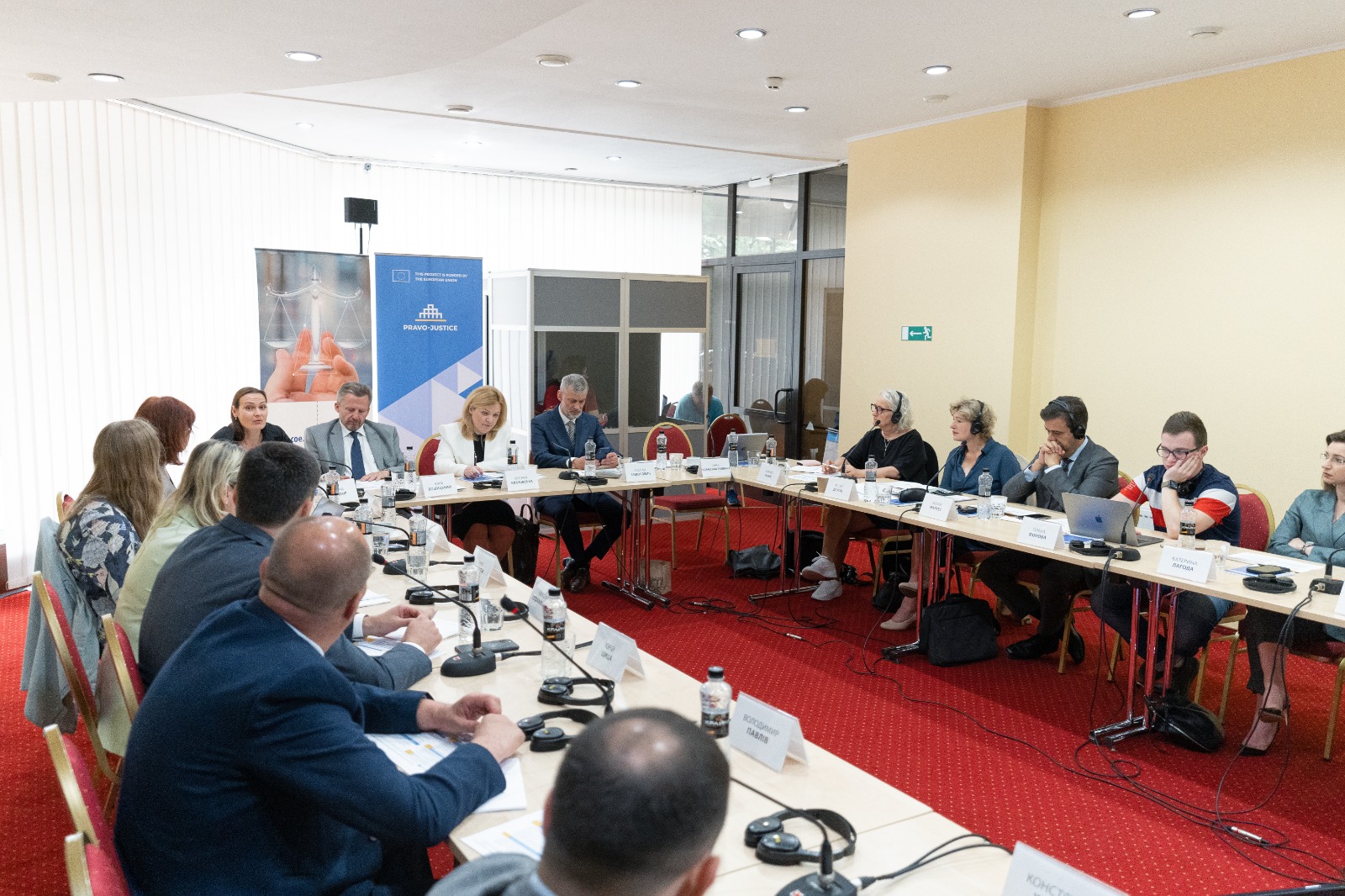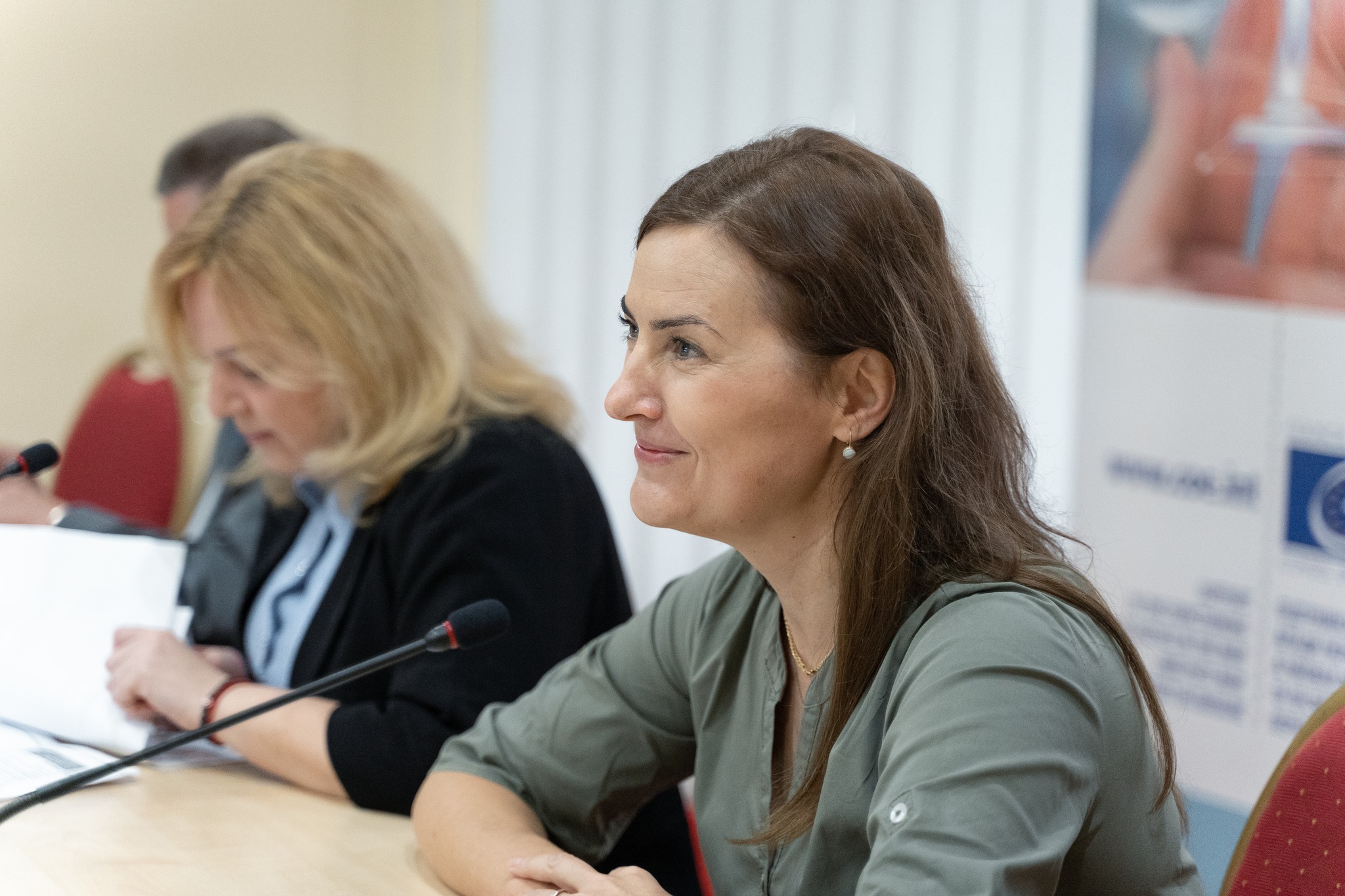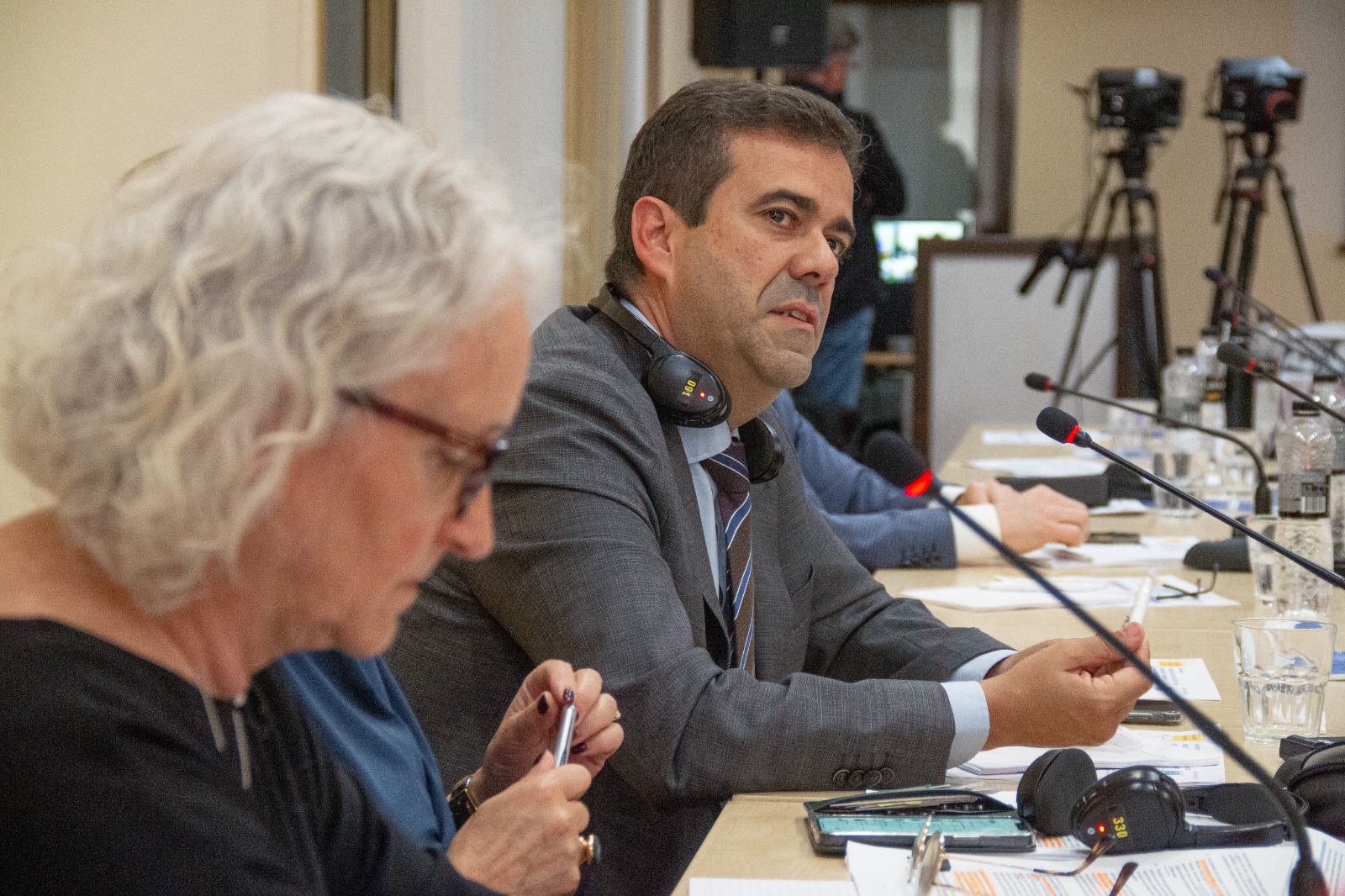EU Project Pravo-Justice Initiated the Conference on the Freedom of Expression for Judges and the Role of Judicial Associations in the Democratic State

On June 9-10, the EU Project Pravo-Justice together with the Directorate of Programme Coordination of the Council of Europe in the framework of the project “Ensuring the effective implementation of the right to a fair trial in Ukraine”, and the Council of Judges of Ukraine held in Lviv the conference “Freedom of Expression for Judges and the Role of Judicial Associations in the Democratic Rule of Law State”.

Anna Adamska-Gallant, Lead of the Judiciary Component, EU Project Pravo-Justice, intervened at the event. In her speech, she emphasized that one of the judge’s main duties is to defend the independence of the judiciary and to communicate with civil society, especially when the rule of law is under threat.
“Words are very important and very powerful. When we talk about freedom of expression, especially that of judges, it is also great responsibility. Unfortunately, Ukraine is currently going through hard time. On the one hand, there is a terrible war, and on the other hand, there are these challenges before the judiciary, which is also going through an incredibly difficult period. We all know the level of mistrust currently befalling all members of the judicial system in Ukraine. Therefore, it is very important to do everything in order to change this situation and restore trust, without which there is no rule of law. Indeed, this is an incredibly difficult task, which has arisen, in particular, before the High Council of Justice and the High Qualification Commission of Judges. However, it is extremely important, because there can be no rule of law in the absence of trust in the judicial system,” emphasized Anna Adamska-Gallant.
The event was attended by representatives of the High Council of Justice, the High Qualification Commission of Judges of Ukraine, the Supreme Court, the Council of Judges of Ukraine, and by the judges who are members of judicial associations. The discussion focused on the principles and recommendations of Opinion 25 of the CCJE and their application in the Ukrainian judicial system. At the same time, much attention was paid to the European best practices in ensuring the freedom of expression for judges and the activities of professional judicial associations.
Deputy President of the District Court of Amsterdam, Member of the Board of the Association of Judges (Netherlands), Esther de Rooij, emphasized, among others, what parameters judges should take into account when exercising their right to freedom of expression, both in and out of court.
Public trust is what gives us the ground; we cannot function without it, and therefore, when it comes to freedom of expression, within this context, freedom means responsibility in the first place. It is our responsibility to earn and maintain trust. Judges shall also understand that they are jointly responsible for an independent and impartial judicial system, because it is only together that we can form high norms and values”, said Esther de Rooij.

The event was also attended by Filipe Marques, judge of the Court of Auditors of Lisbon, former President of MEDEL – Association of European Judges for Democracy and Freedom (Portugal). He emphasized the importance of the freedom of expression for judges in a democratic society, however, he called on his colleagues to strike due balance between responsibility and freedom of speech.
“First of all, one should always remember that judges are the same citizens as everyone else. A judge should not forget that he or she is not some special citizen, but an ordinary one, though vested with extraordinary functions. Of course, like all any other members of society, judges have the right to freedom of expression, however, in the light of the said functions, it is extremely important to strike a balance between responsibility and freedom of expression, because sometimes one sentence may jeopardize the whole system,” said Filipe Marques.
The participants to the conference also discussed the role of various judicial associations in building up the rule of law and promoting judicial independence. Thus, Edith Zeller, judge of the Administrative Court of Vienna, former head of the European Association of Administrative Judges (Austria), outlined the main areas of intervention of these organizations, including networking; dissemination of information about the most important events related to the work of judges; assistance in solving existing problems; and wide public outreach.
In addition, Edith Zeller emphasized that associations of judges should monitor the integrity of their members; set high moral standards for them; create a positive role model that would encourage them to behave appropriately; and take into account high reputational risks.
“Integrity also includes the aspect of resilience to any improper influence or unethical behavior, in particular, to corruption. High-level judicial integrity is a cornerstone for maintaining the rule of law,” she said.
In his turn, Marc Fierstra, justice of the Supreme Court of the Netherlands, President of the Association of Judicial Authorities (Netherlands), believes that one of the most important functions of such organizations is to express and protect the interests of judges, and the key values of their profession.
“Judges themselves can promote the spread of such values and talk about them at various public discussions. They can personally explain to the public why the independence, autonomy, impartiality, knowledge, and integrity of the judge are important components that ensure the rule of law in the country. They should speak for themselves about why this is for the benefir of all citizens and civil society as a whole,” says Marc Fierstra.
He is also convinced that associations of judges are important for the formulation and further functioning of professional and ethical standards applied within the judicial system.